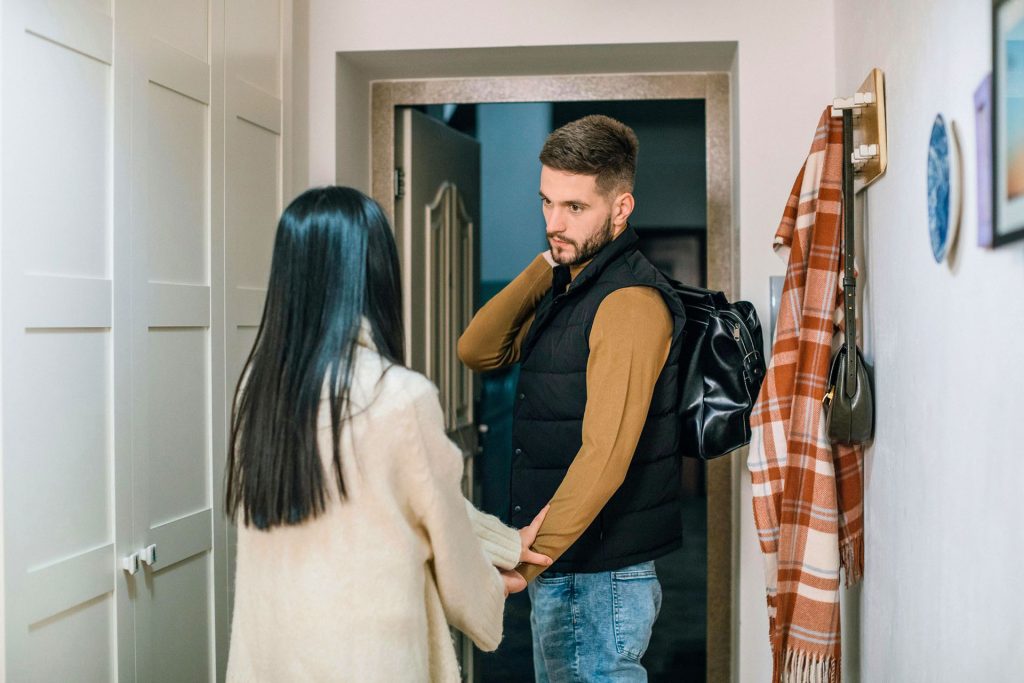Key points:
Unrequited love activates the brain’s reward circuitry.
Fantasy projections distort our perception of reality.
Unresolved rejection triggers rumination.
Healing begins with self-acceptance.
In the world of love, unrequited love is like a silent movie in which you are the protagonist but have no co-star. Most people have experienced or witnessed such a scenario: one person deeply loves another, yet the other shows no response. The pain caused by unrequited love can sometimes be more intense than a breakup, even if there has never been a genuine romantic relationship. So, why do we find ourselves in this predicament of unrequited love? Today, let us explore this from the perspectives of psychology and biology.

01
The brain’s reward mechanism: addictive unrequited love
Love often defies logic, and neuroscience research has revealed the underlying mysteries. When we fall in love, the brain’s reward system is activated, particularly the dopamine pathway, which functions similarly to how addictive substances affect the brain. In a mutual romantic relationship, the brain continuously receives rewards, like constantly reaping sweet fruits. However, in the case of unrequited love, we are chasing an elusive phantom, only occasionally receiving intermittent rewards, such as a smile, a kind word, or a moment of attention.
This intermittent reinforcement mechanism sets a trap that is hard to resist. It continuously strengthens our emotional attachment, much like the mechanism that leads gamblers to become addicted. Once the brain is caught in this cycle, it is like being trapped in a whirlpool, making it difficult to break free. We constantly anticipate the next reward, even when hope is faint, and find it hard to let go. This is why those in unrequited love often find themselves in a state of helplessness, knowing there is no outcome yet unable to stop thinking about that person.
02
The Trap of Fantasy: Falling in Love with an Imagined Person
Often, we don’t fall in love with the other person’s true self, but with the person we imagine them to be. We often project our unmet needs, beautiful hopes, and the qualities of an ideal partner onto the other person. In our imagination, the other person is flawless, someone who can fulfill all our expectations. When our feelings are not reciprocated, the brain does not easily give up this beautiful fantasy; instead, it reinforces it further. We keep telling ourselves, “If only they loved me too, everything would be different.”
Imagined experiences can trigger dopamine release nearly identical to that of real experiences, making the fantasy itself emotionally rewarding. Even when we rationally know this love is illusory, the pleasurable chemical stimulation makes it hard to let go. It’s like being immersed in a beautiful movie and unwilling to leave that fantasy world. We become increasingly entangled in the fantasies we weave for ourselves, ignoring the other person’s true nature and the harsh realities of life.
03
Lack of closure: Unresolved emotional entanglements
Our brains naturally crave closure, the sense that something has a beginning and an end. However, when faced with the pain of unrequited love, the brain often struggles to accept this reality. Even after being explicitly rejected, we find it unbearable to acknowledge that the relationship has ended. As a result, our brains enter a state of constant replay, repeatedly reminiscing about every conversation with the other person, imagining different outcomes, or endlessly reflecting on whether we could have done something better.
This is not simply denial; it is the brain’s attempt to resolve an emotional conflict that feels unresolved. The greater the gap between expectations and reality, the harder the brain works to bridge that gap. Ironically, this effort only prolongs our attachment, making it harder to move forward. We are like being trapped in a maze, constantly searching for an exit but never finding our way. The lack of closure feels like a thorn deeply embedded in our hearts, preventing us from letting go.
04
Old wounds resurface: The impact of childhood trauma
The impact of unrequited love can be far more profound than anticipated. It may trigger deep-seated emotional wounds from our past. If we did not receive enough stable, unconditional love as children, we may unconsciously seek out similar relationship patterns as adults. Psychologists refer to this phenomenon as “compulsive repetition,” which involves attempting to recreate early relationship patterns in the hope of ultimately gaining control over them.
When we encounter someone emotionally inaccessible, that intense longing is reignited—not just for love, but for emotional validation and a sense of self-worth. This challenge of trying to win someone over mirrors our childhood experiences of striving for our parents’ affection. However, these patterns often lead to further hurt, deepening our inner wounds and resulting in more doubt, insecurity, and heartbreak. We find ourselves trapped in a cycle, endlessly repeating the same patterns, unable to escape the shadows of the past.
05
The Boundaries Between Authentic Feelings and Obligation
One of the most painful aspects of unrequited love is the sense of unfairness. We invest so much emotion, yet receive no response in return, leaving us feeling that our love has no value. However, healthy love requires mutual effort from both parties. No matter how intense our feelings may be, we cannot force others to reciprocate them.
Our feelings are real, there is no doubt about that. Others’ inability to reciprocate our love does not mean we have no value; it reflects their own readiness, capacity, or choices. Sometimes, we confuse intense emotions with compatibility, but true emotional connection requires more than just strong feelings. It requires mutual interest, shared values, ongoing care, and emotional security. Without these elements, no matter how deeply we love, we cannot build a genuine relationship.
06
Healing and Moving Forward: Learning to Love Yourself
If you are suffering from unrequited love, do not doubt yourself—this actually demonstrates your strong capacity for love. However, now may be the time to pause and carefully examine what you truly desire. Ask yourself: What do you truly want in this relationship? Are you clinging to hope, or fixated on an unrealistic fantasy? What would it mean to redirect that energy of love toward yourself?
The beginning of healing is to stop chasing that fantasy and start respecting the real you. Unrequited love often reflects unmet needs or early trauma within us, but this does not mean it will determine our future. When we recognize that our worth does not depend on whether others love us, we regain the power to control our own lives.
From a place of clarity and self-respect, we begin to discover love that truly suits us. This love is not attained through pursuit but begins when we start treating ourselves as we would others. We must learn to give ourselves care and compassion, meet our own needs, and become more whole. Only then can we attract love that is mutual, grounded, and secure.
In summary, unrequited love is a common emotional experience, but we can find ways to heal ourselves by understanding the psychological principles behind it. I hope that everyone who has experienced unrequited love can move beyond the pain and embrace the beautiful love that belongs to them.

